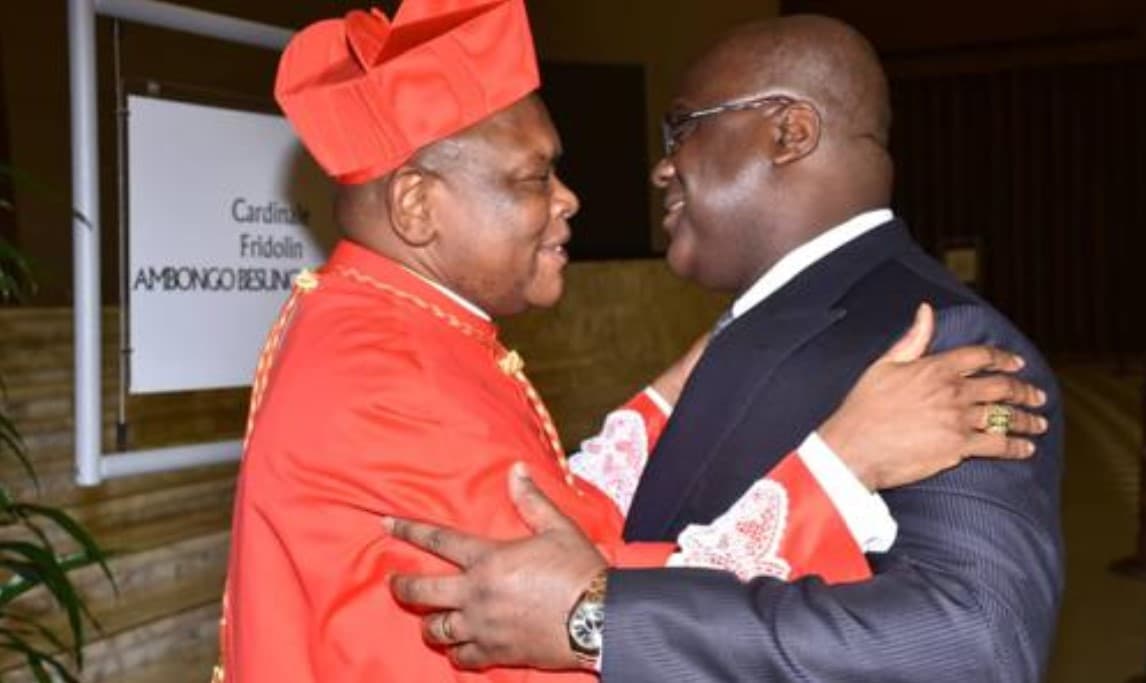ROME – In the old days, monarchs and emperors who governed the great Catholic powers of the day claimed what they rather fancifully described as a jus exclusivae, or “right of exclusion,” in papal elections, meaning the power to exercise a veto over a particular candidate.
The last time this right of exclusion was invoked was in 1903, when Emperor Franz Joseph of Austria objected to the possible choice of Cardinal Mariano Rampolla, whom the Austrians regarded as excessively pro-French. As a result, Cardinal Giuseppe Sarto of Venice was elected instead as Pope Pius X, and among his first acts was to issue Commissum nobis on Jan. 20, 1904, effectively abolishing the imperial veto.
There’s an ironic sense today in which the jus exclusivae continues to hang around, only with the reverse effect: Perceptions of efforts by secular powers to block a given churchman’s career arguably boost, rather than retard, his papal prospects.
A reminder of the point comes at the moment from the Democratic Republic of Congo, where a new judicial investigation of Cardinal Fridolin Ambongo of Kinshasa on charges of sedition, including fomenting disobedience among the country’s armed forces, seems a rather transparent effort to intimidate and muzzle the 64-year-old prelate and frequent thorn in the side of the Congolese government.
RELATED: Clergy, laity protest ‘shameful’ judicial probe of Congo cardinal
In effect, the regime of President Félix Tshisekedi may be doing Ambongo a huge favor by boosting his global celebrity, potentially turning him into a martyr and cause célèbre. If so, it would be an especially ironic result for Tshisekedi, whose great-uncle was a Catholic bishop in Congo for 28 years.
Despite that pedigree, Tshisekedi’s relationship with the current crop of Catholic hierarchs in the country, especially Ambongo, has never been close. For one thing, Tshisekedi has drifted from his Catholic roots, worshipping in a Pentecostal mega-church called the Centre missionnaire Philadelphie and surrounding himself a cluster of Pentecostal and Evangelical pastor-advisors.
More basically, Ambongo and his fellow bishops have been persistent critics of Tshisekedi on social justice grounds, faulting the government for alleged democratic deficiencies, for failures to address a disastrous security situation in eastern Congo, for the role of multi-national mining interests in national affairs, and a host of other matters.
It should be said that in so doing, Ambongo is carrying on a grand Africa and Congolese tradition. In many African nations, where civil society is under-developed and political opposition is stifled, churches are often the only sphere of life where a genuinely alternative vision can be articulated. As a result, religious leaders often play a directly political role which, by Western standards of church/state separation, can seem excessive.
To take a classic example, Ambongo’s predecessor in Kinshasa, the late Cardinal Laurent Monsengwo Pasinya, served as president of a transitional “High Council of the Republic” following the end of the regime of Mobutu Sese Seko, making Monsengwo the country’s de facto head of state. He later also served as transitional speaker of the national parliament in 1994.
What makes all this relevant to papal elections is that Ambongo of late has emerged as a hot new papabile, or candidate to become pope, mostly as a result of his deft handling of the African resistance to Fiducia Supplicans, the hyper-controversial Vatican document authorizing blessing of couples in same-sex unions.
As the elected president of the Episcopal Conferences of Africa and Madagascar (SECAM), Ambongo led his fellow African prelates in composing a common statement declaring Fiducia a dead letter on the continent. Yet he released that statement with the blessing of Pope Francis and in coordination with Cardinal Victor Manuel Fernandez, head of the Dicastery for the Doctrine of the Faith and the primary author of Fiducia, thereby winning respect from both critics of the document and also supporters of the pope.
Having thereby turned heads on an ad intra matter, meaning an issue that pertains to the internal life of the church, Ambongo’s ad extra role is now in the spotlight thanks to the efforts of the Congolese government to intimidate him into silence.
In March, Congo announced it was lifting a two decades-old ban on the death penalty, reinstating capital punishment for cases of treason and espionage. While no one seriously expects prosecutors to seek to put Ambongo to death, charges of sedition in a country dealing with armed rebellion are no joking matter, and it’s hard to predict at this stage how serious the threat to Ambongo might be.
Should the investigation result in actual charges or other legal measures, one predictable consequence would be to make Ambongo’s fate a matter of global Catholic concern, significantly elevating his profile.
In terms of papal politics, not only would that give Ambongo greater name recognition, but it would also spotlight aspects of his résumé likely to resonate with “continuity” voters, meaning cardinals wanting to carry forward the Pope Francis agenda. His role on Fiducia played well with conservatives, but his conflicts with the Congolese government are largely staked on classic Pope Francis grounds.
When the pontiff visited the country in January 2023, he denounced economic colonialism, famously insisting, “Hands off the Democratic Republic of the Congo, hands off Africa! It is not a mine to be stripped, or a terrain to be plundered.”
Today Ambongo is confirming that message, at some degree of personal risk, in ways that backers of Francis can’t help but admire.
In other words, in attempting to stifle Ambongo, the Congolese regime may inadvertently turn out to be the best campaign manager any papabile could ever have – whether, in fact, he actually wants it or not.












